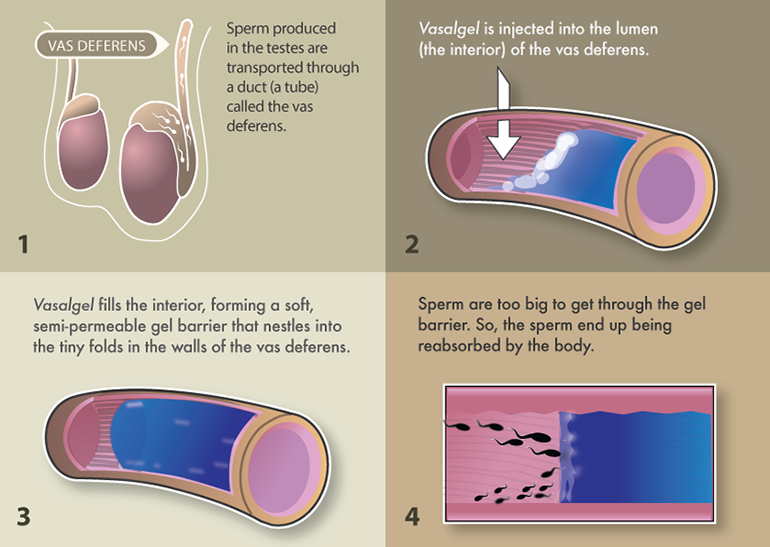Positive animal trial results for reversible male contraceptive
Researchers at the University of California have published positive results of a trial in rhesus monkeys for Vasalgel, a long-term, reversible, non-hormonal male contraceptive injection. Vasalgel is injected in a similar manner to the no-scalpel vasectomy. In a vasectomy, the vas deferens, a small tube transporting sperm from the testes, is cut and results in sterilisation. Vasalgel is instead injected into the lumen of the vas deferens where the gel forms a blockage that does not allow sperm to penetrate.
The temporary reduction in sperm count can then be reversed after months or years with a separate injection that dissolves the polymer plug, returning the vas deferens to full functionality.

Published in the Journal of Basic and Clinical Andrology, the study showed that of the 16 adult male rhesus monkeys injected with Vasalgel none fathered offspring in a two-year period of mating. No major side effects were reported and any procedural complications were considered to be similar to those associated with traditional vasectomy.
The study did not investigate the success of reversing the procedure after two years. However, this trial in monkeys follows previous positive results of Vasalgel use in rabbits, where the reversal of the procedure was shown to be successful immediately following a 12-month period of sterilisation.
The development of Vasalgel has been conducted by the Parsemus Foundation, a non-profit based in Berkley, CA, that utilises grants and fundraising to advance innovative but neglected medical research. The foundation hopes to begin a trial of Vasalgel in humans in the next two years.





